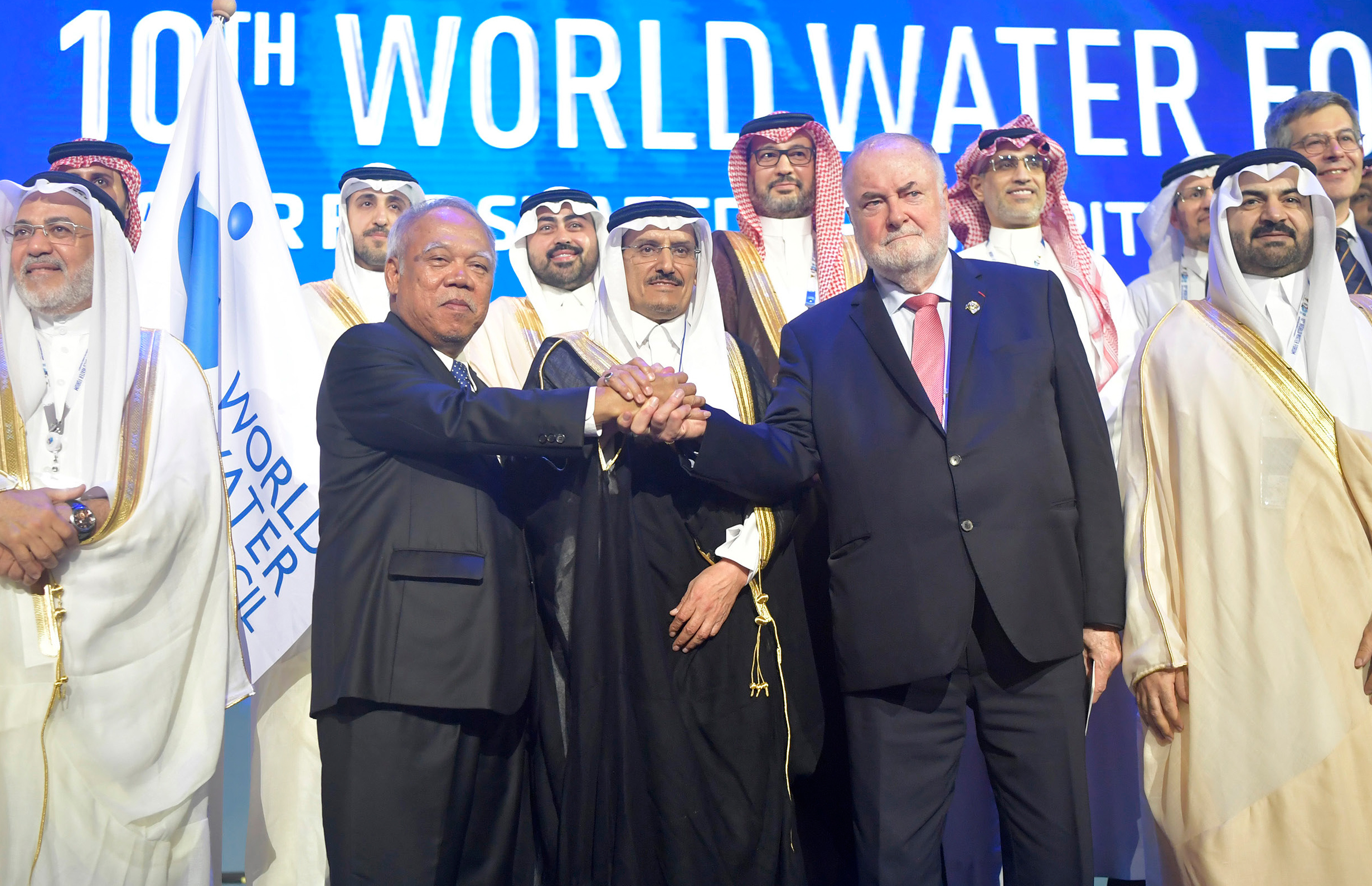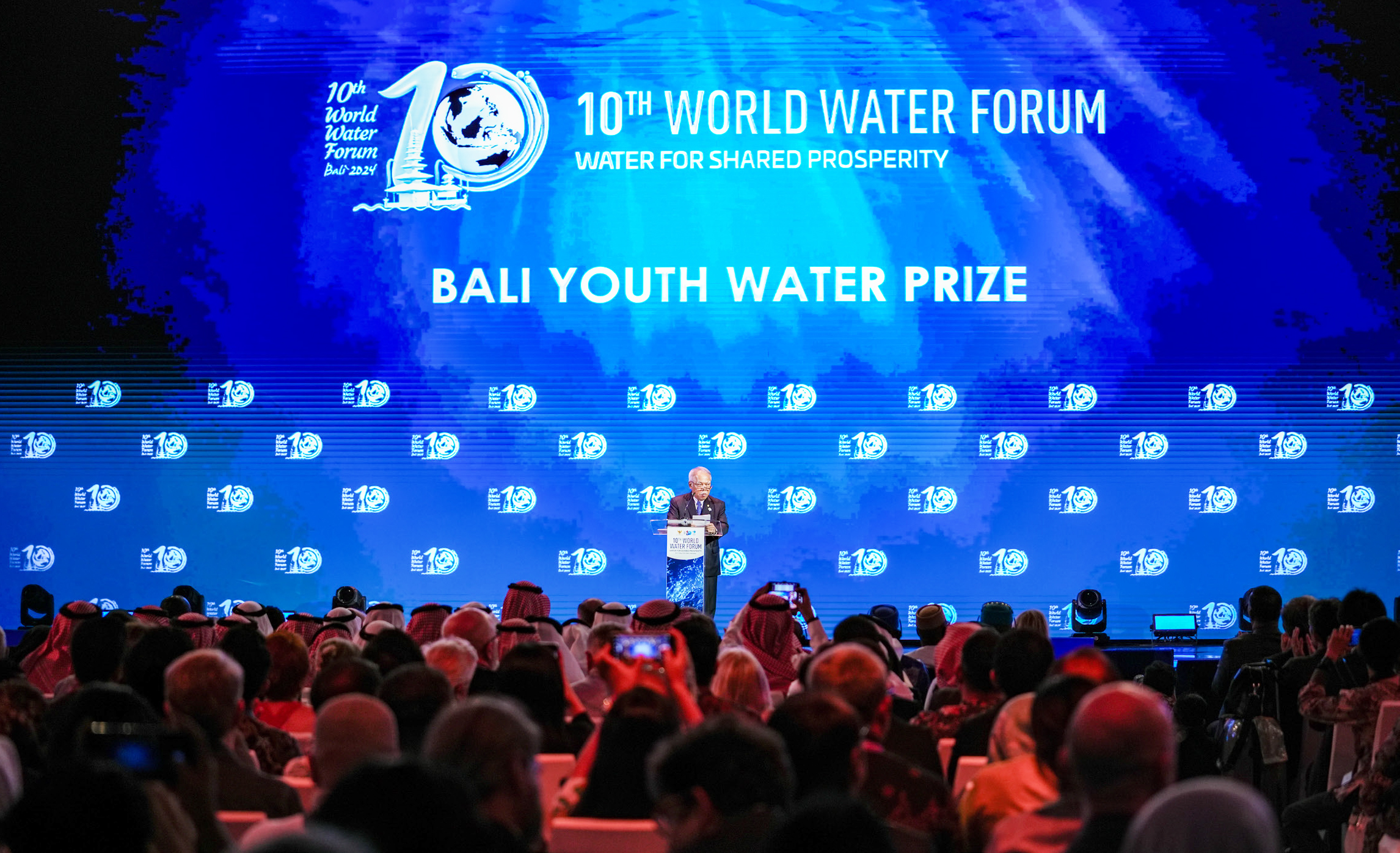
The topic and location of the 10th World Water Forum could not have been closer to home for Indonesian farmer Frans Gata, who said he watched the event on TV not realizing it was taking place in Bali.
Gata cultivates a one-hectare rice field in Sumlili Village near the East Nusa Tenggara provincial capital of Kupang, about 1,600 kilometers west of the resort island where the forum ran from May 20 to 24.
The summit, the world’s largest of its kind, is held every three years. It aims to highlight the urgent need to bring water to millions of people who are deprived of it to meet demands for irrigation and daily consumption. Other discussion topics in Bali included sanitation and the blue economy.
China has also developed seawater desalination as a strategic and influential industry in recent years
This year a total of 106 countries and 27 international organizations were represented with thousands of experts, business executives and civil society leaders, as well as several heads of state and government, and other high-level officials, in attendance. China’s water resources minister Li Guoying delivered a speech outlining four major water challenges facing the world — disasters, shortages and stresses, ecosystem degradation, and environmental damage — along with China’s significant strides in water management, supply, and security.
China has also developed seawater desalination as a strategic and influential industry in recent years. Seawater in China has become an important supplementary water source for water-deprived communities who use it for irrigation and daily consumption.
ALSO READ: China’s water governance in focus
In archipelagic Indonesia, the Indonesian administration has built more and more rainwater retention basins in East Nusa Tenggara and in other freshwater-deprived islands in eastern regions.
However, none have been built in Gata’s district, a beachside area where rice fields and plantations are still rain-reliant.
“This year we saw very little rainfall, like in the past years. Rainfall has not only become less and less from year to year, now we can no longer be certain when rainfall precisely begins and when it ends,” Gata said.
Previously, rainfall in his district began in November and lasted until March, while volume was large enough for rice fields to turn out sufficient crop yield for farmers to not only survive but thrive.
Back then, Gata not only succeeded in getting enough rice for his family’s daily needs but he sold a portion of his crop to fund the university education of his eldest son.
Now, he said he cannot afford to send his two other children to university.
In Bali, most areas seriously lack water for irrigation during dry season and many families are forced to buy drinking water.
“Even worse, seawater intrusion to land in certain areas in Bali is predicted to increase from year to year, lowering water quality,” said Edward Angimoy, development coordinator of Bali-based IDEP Foundation, which works on sustainable development through permaculture and community-based disaster management.
With its Bali Water Protection Program, IDEP Foundation is carrying out research-based advocacy activities to educate local policymakers on sustainable water management.
The 10th World Water Forum ended with a ministerial declaration and concrete action compendium, listing 113 projects in the water and sanitation sector worth $9.4 billion. Saudi Arabia is to host the 11th World Water Forum. Time will tell what impact they have in solving the global water crisis, experts said.

Wahyu Ario Pratomo, an economics professor at Indonesia’s North Sumatra University in Medan, specifically said that countries need to learn from China’s advanced technologies for irrigation and fresh water supply.
“Indonesia has abundant seawater and fresh water (on land), and China has water technologies. They know how to utilize existing water sources,” Pratomo said.
Pratomo noted that islands in East Nusa Tenggara and other parts of eastern Indonesia differ from the country’s western region, as the latter has more big islands with many rivers and streams.
While appreciating the many specific and concrete ways turned out by the Bali forum for solving the global water crisis, Pratomo said that international communities must join hands more strongly to develop the maritime economy, such as providing traditional fishermen with modern vessels.
Indonesia could do much better in reducing childhood growth problems if families consume enough fish and other edible items from the sea, he said.
ALSO READ: Indonesia minister says Musk to consider offer to build EV battery plant in country
Neak Sokkim, CEO of Phnom Penh-based Chalatex, a startup dedicated to addressing the water challenges faced by farmers in Cambodia, said that irrigation and drinking water accessibility in her country varies, with rural areas experiencing more difficulties compared to urban centers.
“Efforts are ongoing to improve water infrastructure and management to ensure more reliable access to both irrigation and drinking water,” Sokkim said.
On May 15, Sokkim and her team were among the finalists of the second China-Association of Southeast Asian Nations Innovation and Entrepreneurship competition in Jakarta. Chalatex won second place in the competition for its smart irrigation systems.
Sokkim said that during the dry season farmers in Cambodia face considerable challenges in securing adequate water for their fields.
She said the center of excellence on water and climate security adopted at the Bali forum could be crucially supportive to Cambodia’s efforts managing water variability, promoting climate-resilient agricultural practices, improving urban water infrastructure, protecting critical ecosystems, and engaging local communities in adaptation strategies.
“It is crucial to emphasize the need for continued investment in water infrastructure and sustainable agricultural technologies,” Sokkim said, stressing the need for solid cooperation between the government, private sector, and international organizations.
The writer is a freelance journalist for China Daily.


